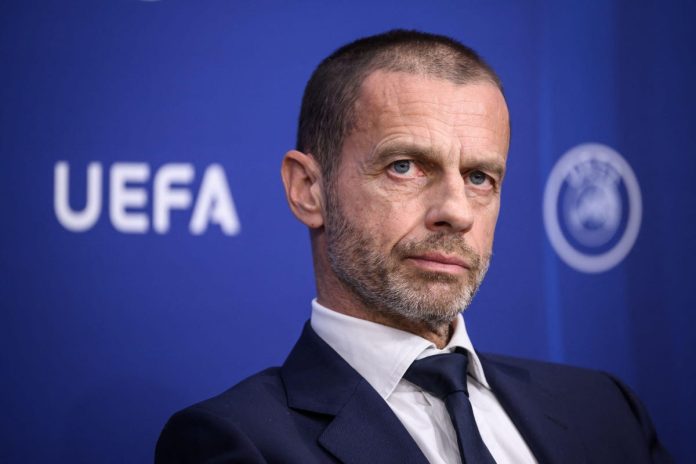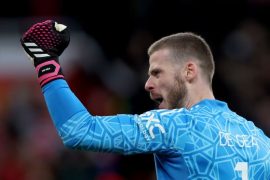UEFA president Aleksander Ceferin has hinted at future plans for player salary caps, in addition to the imminent financial and sustainability regulations that will come into effect next season.
Clubs will be subject to cost controls for the first time by the beginning of next season, in an attempt to try and curb overspending and reign in the mounting debt across European football.
Remaining competitive and upholding elite status has taken precedence, with clubs willingly loading on debt as a short-term solution. This has forced UEFA into imposing more stringent measures to try and minimise spending.
The new UEFA regulations will be drip-fed in order for clubs to align with the new measures – at first with a 90% restriction in accordance with the club’s revenue in 2023/2024, before reaching 70% in 2025/2026.
As UEFA outline, it will help to encourage “more performance-related costs and limit the market inflation of wages and transfer costs of players.”
However, the governing body’s president has hinted at further measures in the near future in conjunction with the previously announced changes, including the introduction of player salary caps.
Speaking to MenInBlazers, he said: “You can spend up to 70% of your revenues for salaries and transfers, but that’s not enough because if your revenues are five billion, 70% is quite a lot.”
The proposed change would be a blanket salary cap for all clubs in order to create a level playing field, as opposed to a salary cap per individual player.
🚨 UEFA President Aleksander Ceferin says a salary cap is on the table in football in the coming years. 💰
(🎥 @MenInBlazers)
pic.twitter.com/bpcdTvWjYF— Transfer News Live (@DeadlineDayLive) April 26, 2023
Ceferin continued, saying: “It’s not about the owners; it’s about the value of the competition because if five clubs will always win, then it doesn’t make sense anymore.
“But it has to be a collective agreement – every league and UEFA. Because if we do it and the other leagues don’t, it doesn’t make sense’.”
RELATED: How Todd Boehly and Chelsea Are Bypassing FFP With Long-Term Contracts
The most pertinent example of the dangers of extortionate salaries is Barcelona, who effectively loaded on billions of euros worth of debt in order to lure high profile signings to the club, such as Antoine Griezmann and Philippe Coutinho.
This led to Lionel Messi being forced to leave his boyhood club as La Liga rejected their affordability, or lack thereof.
Although returning president Joan Laporta has managed to steady the ship by selling off merchandising and broadcasting rights, they are still some may off balancing their books, and need to find a £200 million surplus in order to register new players by next season.
Chief Executive of the Professional Footballer’s Association Maheta Molango took issue with Ceferin’s suggestions, saying the players themselves would not be best pleased.
“Capping the wages of those who create the ‘product’ that others continue to benefit from is not a solution to ensuring better financial management by leagues and clubs.”
Related Football Content
- Football Betting Tips 2023 – Latest Picks & Football Tips
- Football Predictions April 2023
- Football Accumulator Tips 2023 – Latest Acca Betting Tips
- Best Correct Score Tipsters on Telegram & Social Media 2023
Add Sportslens to your Google News Feed!






